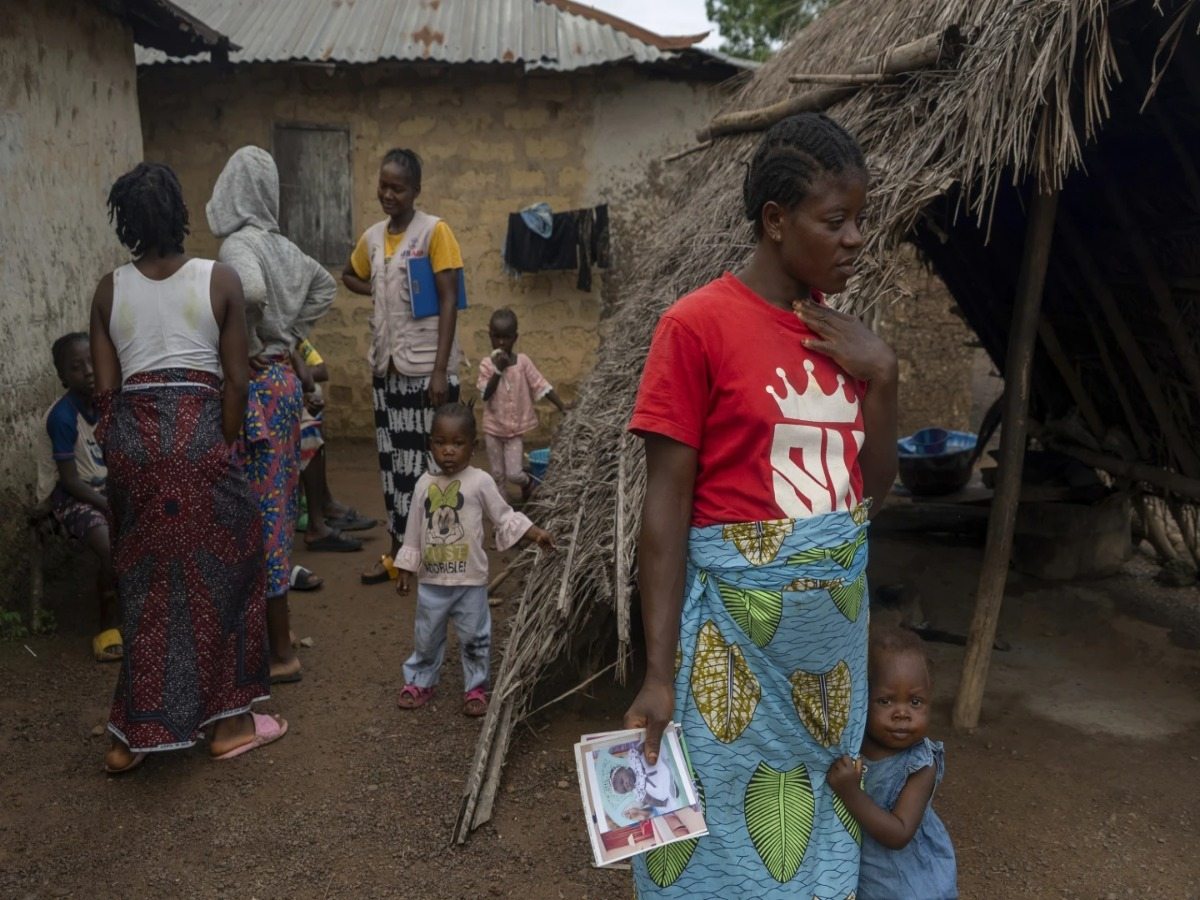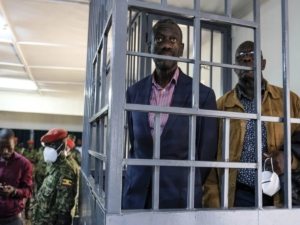When 32-year-old Roseline Phay began searching for contraceptives five months ago, she couldn’t have known her efforts were already doomed. With two young daughters and barely enough to survive as a farmer in rural Liberia, Phay was determined not to have another child. But clinic after clinic turned her away, contraceptives were nowhere to be found.
She made the long, exhausting journey from her remote village in Bong County four times, walking along the red clay roads in search of birth control. Every time, the answer was the same: supplies had run out. Her persistence ended in heartbreak, she became pregnant.
“I’m suffering,” she said, her daughter Pauline crying in her arms, according to AP’s report. “I have this little child on my back, and the other child in my stomach is suffering.”
READ ALSO: Obama, Bush and Bono decry USAID shutdown, blame Trump administration
Unbeknownst to Phay, her struggle was part of a much larger crisis. A few weeks before she began her search, the U.S. government, under President Donald Trump, had abruptly suspended major foreign aid through the U.S. Agency for International Development (USAID). For Liberia, where American aid made up nearly 2.6% of the gross national income, the highest share globally, the consequences were devastating.
Watch a recent episode of The BreakDown podcast below and subscribe to our channel PanaGenius TV for latest episodes.
After falling pregnant, Phay was forced to stop breastfeeding Pauline. The girl grew dangerously malnourished, nearly dying due to a lack of therapeutic food that USAID had once provided. Pauline is still unwell.
Across Liberia, the fallout from the cuts is widespread and personal. In Bong County alone, health clinics now sit nearly bare. A USAID-funded ambulance can’t run for lack of fuel. Gloves and sanitizer are vanishing from hospitals. Community health workers, like Alice Togbah, remain unpaid for months, still wearing their faded USAID vests as they work with vanishing supplies.
“We are open door to the rest of the world, including the United States,” said Deputy Finance Minister Dehpue Y. Zuo, who has struggled to keep essential systems afloat. “But there are gaps to be filled, and that cannot be covered by the government of Liberia.”
Liberia, a nation with deep historical ties to the United States, has long relied on American support to recover from civil war and the Ebola epidemic. The country’s flag resembles the U.S. flag, and many Liberians refer to the U.S. as their “big brother.” So when Trump’s administration pulled the plug, many officials were stunned.
“The impact of USAID in Liberia cannot be overstated,” said Richlue O. Burphy, who spent over a decade on USAID-backed projects. “Almost all government institutions had some kind of USAID partnership.”
The numbers tell the story: between 2014 and 2023, Liberia received an average of $527.6 million annually in aid. In 2024, the country expected $443 million. But with $290 million in undisbursed funds abruptly halted, essential services now hang in the balance.
READ ALSO: Funding cuts from USAID disrupt language education for thousands in Mali
The cuts particularly gutted Liberia’s healthcare system, which relied on USAID for nearly half of its funding. Programs for HIV/AIDS, maternal health, malaria control, and child nutrition have all been slashed. Training for medical workers has halted, and staff are stretched beyond capacity.
In Bong County’s CB Dunbar Hospital, director Moses K. Banyan called the cuts “beyond a shock.” He noted that a warning could have helped. “But it’s like you were sleeping, you woke up and you were told: ‘Hey, leave this house.’”
China has stepped into the vacuum. Its companies are mining gold, building roads, and training workers. Some Liberian students now choose China over the U.S. for their education. Last month, China unveiled a new cardiology wing in the JFK Hospital, ironically named after the American president.
Meanwhile, children like 4-year-old Promise, another Bong County resident, continue to fall ill from malaria. Her mother, Grace Morris, could only get a partial dose of medication at the clinic. “Children die from malaria here,” she said. “What do they want us to eat?”
Access to contraception once helped women in traditional communities take control of their lives. But as supplies vanish, that autonomy slips away.
“If … my man touches me, I cannot say no because I need to satisfy him,” said Phay. “But if I have no medicine, I will get pregnant.”
Her oldest daughter, Promise, now lives with an aunt in Monrovia. Phay clings to the hope she’ll finish school and escape the cycle.
“I am begging,” she said. “If you people have the medicine, you people need to help us. I don’t want her to suffer like me.”
READ ALSO: Trump administration’s USAID cuts threaten malaria fight in Africa










